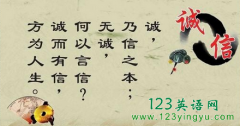Directions: For each blank in the following passage there are four words or phrases marked A, B, C and D. Fill in each blank with the word or phrase that best fits the context.
The health-care economy is filled with unusual and even unique economic relationships. One of the least understood involves the 1 roles of producer or “provider” and purchaser or “consumer” in the typical doctor-patient relationship. In most sectors of the economy, it is the seller who attempts to attract a(n) 2 buyer with various inducements (引诱) of price, quality, and utility, and it is the buyer who makes the decision. Such condition,
3 , is not common in most of the health-care industry.
In the health-care industry, the doctor-patient relationship is the mirror image of the
4 relationship between producer and consumer. Once an individual has chosen to see a physician—and even then there may be no real choice– it is the physician who usually makes all significant 5 decisions: whether the patient should return “next Wednesday,” whether X-rays are needed, whether drugs should be prescribed, etc. It is a rare and experienced patient who will 6 such decisions made by experts or raise in advance questions about price, especially when the disease is regarded as 7 .
This is particularly 8 in relation to hospital care. The physician must give evidence of the 9 for hospitalization, determine what procedures will be performed, and announce when the patient may be allowed to leave. The patient may be consulted about some of these decisions, but in the main it is the doctor’s judgments that are 10 . Little wonder then that in the eye of the hospital it is the physician who is the real “consumer.” As a consequence, the 11 represents the “power center” in hospital policy and decision-making, not the administration.
Although usually there are in this situation four recognizable participants — the physician, the hospital, the patient, and the payer (generally an insurance carrier or government) — the physician makes the 12 for all of them. The hospital becomes an extension of the physician; the payer generally 13 most of the bills generated by the physician/hospital; and for the most part the patient plays a 14 role. We estimate that about 75-80 percent of health-care 15 are determined by physicians, not patients. For this reason, economy directed at patients or the general are relatively ineffective.
1. A. peculiar B. normal C. minor D. vital
2. A. eager B. potential C. overseas D. reluctant
3. A. moreover B. therefore C. however D. instead
4. A. ordinary B. permanent C. stable D. intense
5. A. difficult B. conscious C. early D. purchasing
6. A. accept B. confirm C. challenge D. announce
7. A. common B. serious C. mild D. preventable
8. A. significant B. rare C. changeable D. alternative
9. A. choice B. need C. disadvantage D. importance
10. A. balanced B. accurate C. independent D. final
11. A. patient B. medical staff C. government D. insurance agent
12. A. academic B. typical C. unique D. essential
13. A. reduces B. sends C. loses D. meets
14. A. traditional B. clear C. passive D. dominant
15. A. spending B. schedule C. therapy D. requirement
1. A 2. B 3. C 4. A 5. D 6. C 7. B 8. A 9. B 10. D
11. B 12. D 13. D 14. C 15. A








